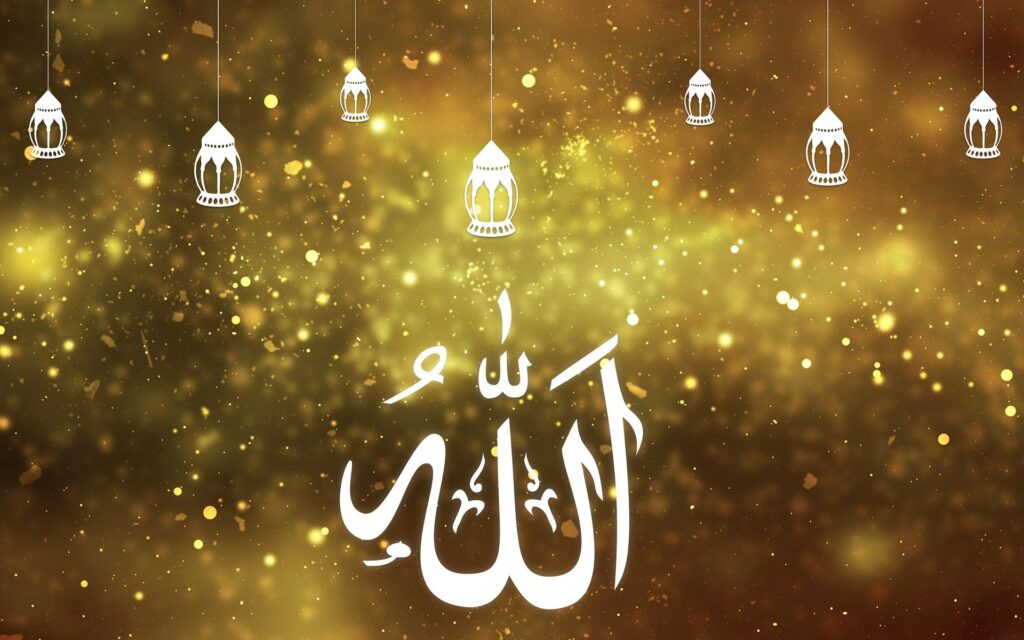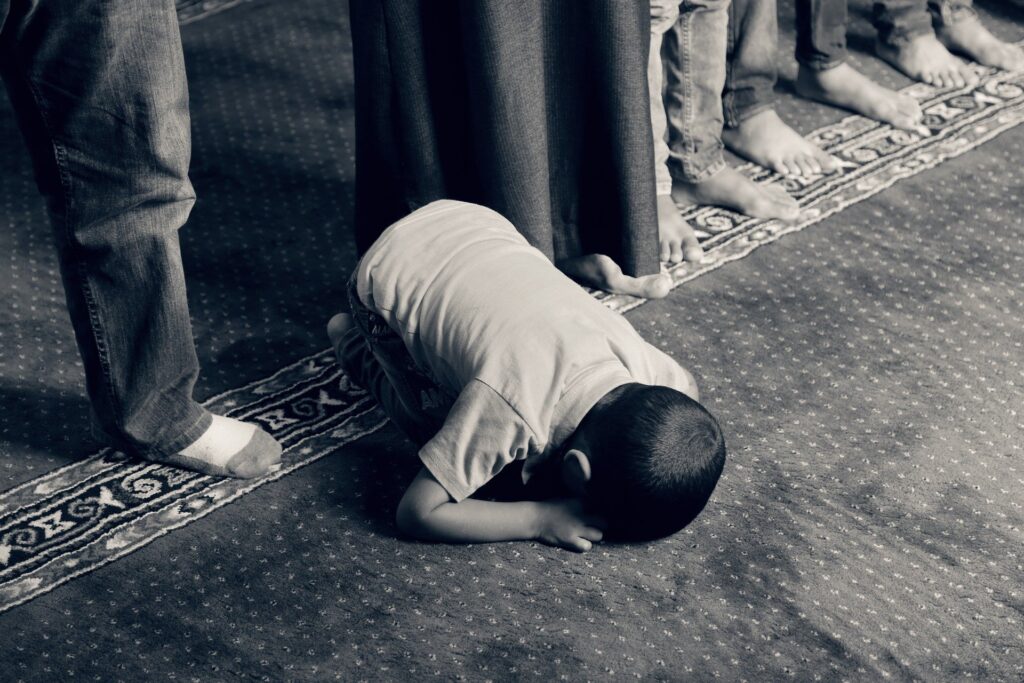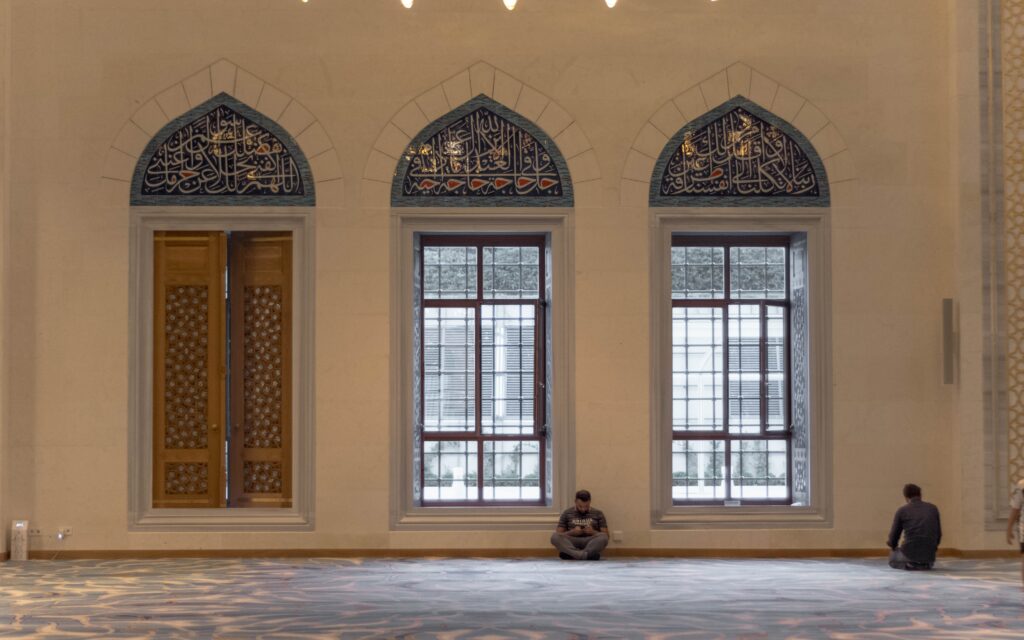Guidance regarding basic Islamic issues – which Hazrat Amirul Momineen, Khalifatul Masih Vaa has given on various occasions in his written correspondence and during MTA programmes – is being officially published below for everyone’s benefit.
Zaheer Ahmad Khan, Head of Records Department, Private Secretariat, London
Of what benefit are Heaven and Hell to God?
Someone wrote to Hazrat Amirul Momineen, Khalifatul Masih Vaa and said, “Allah the Exalted has created us. If we do good deeds, then there is a promise of Heaven and if we do evil deeds, we will have to go to Hell.”
The person then asked, “Of what benefit is that for Allah the Exalted?”
Huzooraa, in a letter dated 4 February 2020, gave the following reply:
“The premise of this question is incorrect because Islam does not at all teach that man should do good out of a desire for Heaven or avoid evil out of fear of Hell. Faith that stems from greed or fear is weak.
“The creation must have such a strong relationship with the Creator that is free from any lure of paradise or fear of Hell. On the contrary, even if it is assumed that there is neither Heaven nor Hell, man should not allow the slightest difference in the worship, love and obedience of His Lord.
“Therefore, in the Quran and the ahadith, the relationship between the Creator and the creation is described as follows: Man should adopt the attributes of Allah the Exalted. He should become His true servant and should seek His pleasure in every word and deed.
“The Promised Messiahas has also mentioned this subject on numerous occasions. In one place, he wrote:
“‘Our paradise lies in our God. Our highest delight is in our God, for we have seen Him and found every beauty in Him. This wealth is worth procuring though one might have to lay down one’s life to procure it.’ (Noah’s Ark, p. 35)

“Thus, the relationship between Allah and His servant is that of a lover and a beloved. No lover says to their beloved, ‘I am in love with you because you gave me this much money or such and such a thing.’ Not at all! On the contrary, such love is free from all kinds of greed or avarice.
“As far as the question is concerned as to what benefit there is for Allah the Exalted in these matters, the answer is that there is no benefit for Him in them because He is free from all kinds of benefit or loss. He has given this teaching to man for the benefit of man alone. Thus, He states:
“‘Whoso is grateful, is grateful only [for the good of] his own soul. And whoso is ungrateful, then surely Allah is Self-Sufficient, Praiseworthy.’ (Surah Luqman, Ch. 31: V. 13)
“This question is like asking, ‘What is the benefit for a mother in feeding her child or in giving her baby bitter medicine when her baby is sick?”, or like asking ‘What is the benefit for a teacher in passing a student who studies well and failing a student who does not study?’ Thus, just as there is no benefit or loss for the mother or the teacher in these matters – rather, there is benefit or loss for the child or the student – in the same way, in the case of Allah and His servant, there is no benefit or loss for Allah the Exalted; rather, it is man alone who reaps the benefit of obeying the Divine commands or the loss of disobeying them.”
Why did God not state everything in absolutely unambiguous terms?
Someone wrote to Hazrat Khalifatul Masih Vaa and asked as to why Allah the Exalted had said complicated things in the holy scriptures instead of stating everything in simple and clear terms, even though He knew that this would later cause disputes.

Huzooraa, in a letter dated 4 February 2020, gave the following reply:
“The fact is that trials are a prerequisite for a high level of faith. That is why in the beginning verses of Surah al-Baqarah, one of the signs of the righteous who are guided and successful is that they believe in the ‘unseen’. Therefore, faith is always only beneficial if there is an aspect of concealment in it so that the difference between a believer and a non-believer can become clear.
“The Promised Messiahas, while stating the wisdom behind this concealment, said:
“‘In a prophecy, it is also necessary to have some degree of concealment and matters that are susceptible of different interpretations. That has always been the Way of God […] Had the prophecies about the Holy Prophetsa, which are mentioned in the Torah and the Gospel, been stated in absolutely unambiguous terms […], then the Jews could not have refused to believe in him. However, God tests His servants to see who among them is righteous and recognises the truth by its signs and believes in it.’ (Malfuzat [Urdu], Vol. 9, pp. 283, Edition 1984)”
Toddlers diverting mothers’ attention during Salat
During a virtual mulaqat of the national amila of Lajna Imaillah Bangladesh with Hazrat Khalifatul Masih Vaa, which was held on 14 November 2020, a member of Lajna Imaillah said to Huzooraa, “Mothers with small children have to pray while holding the children in their arms or putting them on their laps. In that situation, one is naturally more focused on the child than on the prayers.”
She then asked, “Would that not deprive us of the blessings of prayer?”

Huzooraa replied:
“No, you are not being deprived. What you should do is that whenever the child cries, you can put him in your lap and offer your prayer. Then, when you are about to prostrate, you can put the child to the side and continue the prayer. This is a unavoidable situation and Allah knows the state of the hearts. As you are praying with the correct intention, Allah the Exalted shall reward you.
“Nevertheless, you have sufficient time to pray. At Fajr time, children are usually asleep. Otherwise, you can easily offer the Fajr prayer after putting the child to sleep by giving the child a bottle of milk, or by feeding the child first.
“Generally, try to put the baby to sleep and then offer your prayer in peace once you get a break after they have been put to bed or aft er he has been fed. If that break is short, for example, the sun is setting or the sun is rising at the time of the Fajr prayer, then one has no choice but to perform the prayer quickly. Or if your Asr prayer is being lost due to the sun setting, then offer it quickly. However, in general, try to take care of your child’s needs, put him to sleep and then off er your prayer.
“However, if you are compelled to take the child in your arms and off er a prayer, then there is no problem with that, but try to focus on prayer as much as you can. Keep pondering over the words of the prayer.
“Allah gives the reward. He is the Gracious, the Merciful and the Most Forgiving. Allah the Exalted is not cruel at all. He is aware of the whole situation. Thus if, in spite of all eff orts, a woman does not have time and is compelled to pray with her child in her arms, then the reward lies with Allah the Exalted and He does give the reward.”
Naming oneself after the husband
During the same mulaqat, a member of Lajna Imaillah said, “Sometimes, after marriage, girls change their names in a way that they add their husbands’ names to their own names. Is it permissible to do so according to the Islamic teachings?”

Huzooraa replied:
“There is nothing wrong with that. What is the issue in naming oneself like that? […] Also, sometimes, one has no choice with regard to official documents. If someone has a name such as ‘Atiya Babar’ for example, which was given after the girl’s father, it would change to a name such as ‘Atiya Mubashir’ after she gets married and her registration takes place. So, if her name appears as ‘Atiya Mubashir’ on the marriage certificate or other official papers, instead of ‘Atiya Babar’, what is wrong with that? There is nothing wrong with that.
“In Islam, it is perfectly permissible to be named after the husband. [In this example that I have given,] the girl’s real name would be ‘Atiya’. The other name would be added for identification. First, she identified herself by the name of her father. Later, after her marriage, the husband became her identity; rather, it is a good thing if she identifies herself with the name of her husband, for then he will take care of his wife’s honour and the wife will take care of her husband’s honour. And, through this, the two will have more love and attachment with each other.
“Therefore, there is nothing wrong with adopting the husband’s name.”
Tabligh amidst the pandemic
During the same mulaqat, a member of Lajna Imaillah said, “Under the current circumstances, where there is a pandemic, we are unable to preach like before. How can we continue our work under these circumstances? Could Huzoor kindly guide us in this regard?”
Huzooraa replied:
“Now, we have no choice, other than to stay indoors. Governments in some countries have legislated social distancing and some other restrictions due to Covid.
“However, one can develop personal contacts online despite those restrictions. Those who are determined to work have devised plans for virtual tabligh on social media. If your tabligh department is able to create a social media presence, then members of Lajna would be able to go there to do tabligh. The entire Lajna can participate in that. Moreover, you can preach by calling your contacts or sending them messages through social media. You can send a good message or a pleasant quote about the teachings of Islam. Then, more avenues open gradually.
“Hence, there are avenues for doing tabligh that could be explored even under the current circumstances. You will have to make an effort and explore them yourselves.”
Boys not giving preference to piety when looking for spouses
During the same mulaqat, a member of Lajna Imaillah said, “In matters relating to marriage, it has been emphasised that one should give preference to the aspect of religion. However, these days, people give preference to beauty and other qualities and as a result of this, many righteous and religious girls within the Jamaat are not getting married. We would like to request your guidance regarding this.”

Huzooraa replied:
“You see, we can only make an effort and, so, I always endeavour to explain this to the boys – and it is absolutely right and this is what the Holy Prophetsa has said – that when people marry, they look at certain aspects, such as the potential spouse’s family status, her beauty or her wealth. However, a true believer should always look towards the religion of a woman.
“Now, the issue is that if the boys themselves are not religious, how would they look for faith in the girls? Hence, I say to the administration of the Jamaat and to Khuddam-ul-Ahmadiyya to try and inculcate piety amongst boys. Once boys have inculcated righteousness in themselves, they will most certainly try to marry such women who are also pious. So, this is a matter pertaining to tarbiyat and this is something towards which I regularly draw the attention of the Jamaat, Khuddam-ul-Ahmadiyya and Ansar.
“However, it is also the task of the Lajna that they should also make efforts. Those members of Lajna who are older and who are mothers should also endeavour to morally train their children and in particular the boys. They should explain to them that they should marry girls who are righteous and religious. If mothers fulfil their responsibility in this regard, then their sons will surely marry girls who are religious as well.
“The issue is that when it comes to the marriage of their sons, mothers say that we will marry them based upon their own choice and when the marriageable age for girls is passing by, when they get older and when they stop receiving any marriage proposals, the parents then expect the Jamaat to get them married when in actual fact, both parties should seek help through the Jamaat and should endeavour to settle marriages in which both the boy and girl are religious and so that marriages occur within the Jamaat and so that a righteous and pious progeny continues to follow. So, this is a joint effort that men and women ought to carry out together. Mothers and fathers should both fulfil their respective responsibilities in this regard.
“I try to explain these matters and draw the attention of people towards them and pray that Allah the Exalted may enable everyone to act upon this.”
Most pleasing action in God’s sight
During the same mulaqat, a member of Lajna Imaillah said, “Which is the most pleasing and which is the most disliked action in the sight of Allah the Exalted?”
Huzooraa replied:
“The fact of the matter is that such actions can vary depending on an individual’s circumstances.
“A man came to the Holy Prophetsa and asked as to what good deed he should adopt. The Holy Prophetsa replied, ‘Serve your parents. That is pleasing to Allah.’
“Then, another man came and asked as to what good deed he should adopt, which would please Allah the Exalted. The Holy Prophetsa replied, ‘Make financial sacrifices. That is pleasing to Allah the Exalted.’
“Then, a third man came and asked as to what good deed he should adopt that would please Allah the Exalted. The Holy Prophetsa replied, ‘Fight in the way of Allah.’
“Likewise, a fourth person came and he was told some other action. So, the Holy Prophetsa was aware of their circumstances and knew who had what weaknesses. He would have known some of their weaknesses due to his being aware of their circumstances and Allah the Exalted would have also guided him. So, actions can vary depending on an individual’s circumstances.
“Allah the Exalted has given 700 commandments in the Holy Quran, which include virtuous deeds as well as prohibitions. He has laid out what actions are to be performed and which ones are prohibited; the commandments and the prohibitions; the dos and don’ts. Allah the Exalted has revealed a grand list. Now, one has to see for oneself as to what weakness he has that he can then remove and what good deeds he is currently not performing that he can then start doing.
“Thus, if everyone undertakes a self-analysis in this manner, then that would lead to reformation. Therefore, one should seek a fatwa from one’s self. Not every edict appears in black and white. In principle, the instruction is to find one’s weaknesses and to try to remove them; or rather, not only to remove weaknesses but also to perform good deeds.
“Therefore, the basic principle stated by Allah the Exalted is that you have two responsibilities: one is to fulfil the rights owed to Allah the Exalted, that is the right of His worship. If the right of the worship of Allah the Exalted is fulfilled properly, then He gives man the strength to continue doing good deeds because the right of His worship is being fulfilled. Secondly, Allah the Exalted has commanded that one should fulfil the rights owed to His servants. A person who is trying to fulfil the rights owed to God’s servants, would not harm anyone and is consequently enabled to do more and more good deeds.
“These two things are intertwined. So, the most basic task is to fulfil the rights owed to Allah and to fulfil the rights owed to His servants.
“Other than that, one should go into the details, undertake a self-analysis and ask one’s conscience as to what evil deeds one still has to give up and what virtues one still needs to adopt.
“Another thing is that once, a person came to the Holy Prophetsa and told him, ‘I am not such a good person. I have numerous evil characteristics. Please tell me just one evil that I should give up for the time being. I cannot leave all at once.’ The Holy Prophetsa replied, ‘Make a vow that you will not lie and that you will always tell the truth.’ Once he resolved to always tell the truth, every time he was about to commit an evil deed, he would think, ‘If the Holy Prophetsa asked about this evil deed, I would feel embarrassed if I told the truth and if I told a lie, I would have to break the vow not to lie.’
“In this way, all his evil traits gradually disappeared. So, one has to see for themselves. That is why Allah Exalted has equated lying with shirk. Therefore, one should consider that they must not lie even about the smallest things because it is tantamount to shirk and Allah the Exalted dislikes shirk.
“Thus, many of these things vary depending on a person’s individual circumstances. Therefore, undertake a self-analysis and introspect to see what is lacking. However, the fundamental principle is to fulfil the rights owed to Allah and those owed to His servants. Whenever you start doing something, consider that Allah is watching you. When one is certain that Allah the Exalted is watching him, and their every deed, then one will resist evil and do good deeds.”
Huzoor’s message for Lajna Imaillah
During the same mulaqat of 14 November 2020, the president of Lajna Imaillah Bangladesh said, “Could Huzoor kindly give a message for Lajna and Nasirat of Bangladesh which they would convey to all after the meeting.”
Huzooraa replied: “Please convey my ‘assalamu alaikum wa rahmatullah’ to everyone. Also, tell them to remain firm on their faith. Difficult circumstances, worries and painful experiences do come, but never let them undermine your faith. When you experience any difficulty or pain, always bow down before Allah the Exalted instead of placing any kind of hope on any individual. Also, pledge that you will strive for the moral training of yourselves, your children and your progeny and that you will raise them to be righteous, pious and true believers. If you offer this supplication and make an effort for your children, then naturally you will also have to make efforts towards your own reformation.
“Therefore, pay utmost attention towards reforming yourselves so that righteous generations continue to be produced. Also, always bear in mind that if our women are reformed, and they attain piety and the highest standards of taqwa, then, this will, insha–Allah, secure the spiritual well-being of our future generations and we will have nothing to worry about.
“This is the duty of Lajna Imaillah, and this is my message to all the [members of] Lajna and Nasirat who are to become mothers in future, insha–Allah.”

